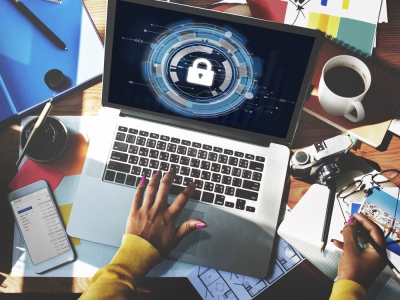Computers cannot run with the speed of light forever, and that shouldn’t take you by surprise, since most computers provided with Microsoft Windows tend to become slower in time. You can notice that the system requires longer periods of time to respond to simple options such as surfing the Internet or opening a certain folder and file.
If you experience these problems with your PC, the following list of tips will definitely come in handy. These tips should be used in the following order, and their goal is to teach you how to make the system respond better in the least invasive way.

General Rule: Try Not To Harm
Everybody wants to enhance the speed of their PCs, so you’re definitely not the only person who happens to be in this situation. However, the main rule that you should always follow is not to harm your computer and ask for help in case something goes wrong. The most common mistake made by PC users who are trying to improve the speed problem is that they make everything in a hurry, without acknowledging that most processes described in this article can be stopped without causing any harm. If you’re cautious and willing to work with computers, solving these problems will be easy as pie.
1. Check to see whether your Hardware is Good Enough
This step is the most important one, because whatever you do at a software level to make your computer run faster will be pointless unless your PC is provided with proper hardware that supports the Windows version you have installed.
2. Clean your Desktop
Many PC users crowd their desktop with files that they want to have at hand all the time. However, this coziness is not very recommended, as you will soon notice that your computer runs slower than it should. In case your hard drive light flashes when the computers tries to respond to one of your commands, you should try to follow the steps described below.
3. Scan the System for Errors
Every operating system is made up of different files that fulfill different tasks. As time goes by, some of the system files can become corrupted or simply change. As a result, your computer begins to run slower and slower because these files can no longer perform their original functions. The most useful thing you can do at this point is to turn to the “System File Checking” utility, which will inspect all the system files and fix whatever problem it encounters.
4. Scan for Spyware, Adware and Viruses
No Windows computer can be completely protected from viruses, which are little programs designed to cause all types of problems to users.
Adware and Spyware are programs designed by popular companies to gather larger amounts of information about clients, so that they can learn new methods of marketing different products and services to them. Although these programs aren’t designed to harm your PC, they can sometimes slow down its memory. That’s why you’re advised to scan and remove Spyware, Adware and Viruses periodically.
5. Uninstall Unused Programs
Over time, PCs get crowded with different programs that users may not even use. However, even unused programs can make your computer run slower. As long as you have the installation files or disks of the programs you don’t use, there’s no reason why you shouldn’t remove them from your PC. This will definitely speed up the performance of your system.
6. Increase PC Performance by Adjusting Visual Effects
Windows features several visual effects such as fading menus and animated windows. In case your computer runs out of operating memory (no.1), you should consider reducing these visual effects.
7. Never Start Programs Automatically
Every program uses system resources known as RAM. That’s why you shouldn’t allow all the programs to load at Windows startup. If you follow this step, you will save not only the performance of your computer, but also its booting.
8. Defragment your Hard Srives
When the computer is loaded with different programs and information, Windows has the tendency to save fragments of the same files several times, in different locations, depending on the available space. Therefore, defragmenting your hard drive will definitely provide you with a better computer experience. However, make sure that all the work saved in your computer is stored on a disk, CD or hard drive before starting the defragmentation process.
Reinstall your Operating System
If all the steps described above don’t work, you should consider reinstalling not only the operating system, but also the programs. This means that you will remove everything for your hard drive and start from scratch. This method is great as it gives you the feeling that your computer is new. Besides, you PC’s speed problems will definitely be gone for months.
Author Bio: Michael Clark is a full time blogger and content writer. He is an eminent writer with interest in small business, technology, and gadgets. He is also working with a site conosco.com which delivers complete IT solutions to companies based in London.









Comments